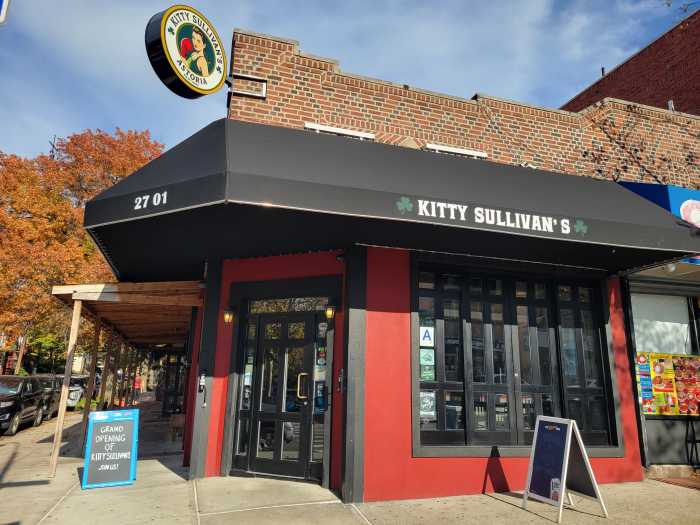Cumulative Impact Of Sequels And New Technology
(AP) An Avatar hangover accounted for Hollywood’s dismal showing early this year, when revenues lagged far behind 2010 receipts that had been inflated by the huge success of James Cameron’s sci-fi sensation.
Just what has kept the movie business in the dumps the rest of 2011 is anyone’s guess.
A solid summer lineup helped studios catch up to 2010, but ticket sales flattened again in the fall and have re- mained sluggish right into what was expected to be a terrific holiday season.
The result: projected domestic revenues for the year of $10.15 billion, down 4 percent from 2010’s, according to box-office tracker Hollywood.com. Taking higher ticket prices into account, movie attendance is off even more, with an estimated 1.275 billion tickets sold, a 4.8 percent decline and the smallest movie audience since 1995, when admissions totaled 1.26 billion.
“There were a lot of high-profile movies that just ended up being a little less than were hoped for,” said Chris Aronson, head of distribution for 20th Century Fox, whose sequel Alvin and the Chipmunks: Chipwrecked has been part of an underachieving lineup of family films for the holidays. “The fall was pretty dismal. There just weren’t any real breakaway, wide-appeal films.”
Big franchises still are knocking it out of the park. Harry Potter and
–SEE MOVIE ON PG. 59- the Deathly Hallows: Part 2, the finale to J.K. Rowling’s fantasy epic, was the year’s biggest earner and the top-grossing film in the series at $381 million domestically and $1.3 billion worldwide.
Transformers: Dark of the Moon pulled in $352 million domestically and $1.1 billion worldwide, while The Twilight Saga: Breaking Dawn- Part 1 has climbed to $271 million domestically and $650 million worldwide.
Other franchises did well in 2011 but came up short of their predecessors on the domestic front, among them Pirates of the Caribbean: On Stranger Tides, The Hangover Part II, Kung Fu Panda 2, Cars 2 and X-Men: First Class.
Strong overseas business has helped make up for shrinking domestic revenues and declining DVD sales. But 2011 was the secondstraight year that domestic attendance declined sharply, and audiences generally have been shrinking since 2002, when admissions hit a modern high of 1.6 billion.
It could be a case of the same-old same-olds, with fans growing tired of over-familiar characters and stories. It could be overcrowded weekends such as Thanksgiving, when studios loaded up on family films that cannibalized one another’s audiences. It could be the economy, with fans growing more selective on how often they spend their spare cash to catch a movie, particularly at a time when so many films play in 3-D with premium ticket prices.
And it could be the times we live in, when audiences have so many gadgets to play with that they don’t need to go to the movies as much as they once did.
“It’s not any one thing. It’s a little bit of everything,” said Jeff Goldstein, general sales manager at Warner Bros., whose Robert Downey Jr. sequel Sherlock Holmes: A Game of Shadows has done solid business, yet is coming in well short of the first installment. “But consumers are being more specific with their choices on how to spend their money. The options are a little greater than they were a few years ago with gaming and social-networking opportunities.”
The year’s animated slate failed to produce a $200 million hit, the first time that’s happened since 2005. Likewise, comic-book superheroes slipped in 2011, the genre unable to deliver a $200 million hit for only the second time in the last 10 years.
Even Adam Sandler, one of Hollywood’s most-bankable stars, had a mixed year, managing a $100 million hit with Just Go With It but barely crossing $70 million with Jack and Jill.
Studio executives typically blame slow business on “the product”- weak movies that leave fans indifferent. But during the first few months of the year, when business lagged as much as 20 percent behind 2010’s, studios were confident they had great product coming, with many executives predicting that 2011 would finish with record revenues, topping the all-time domestic high of $10.6 billion in 2009.
The movies themselves turned out fairly good, and surprise smashes such as Bridesmaids, The Help, Rise of the Planet of the Apes and The Smurfs boosted business.
But the year was littered with duds (Happy Feet Two, Tower Heist, Cowboys & Aliens). And with only days left in 2011, Tom Cruise’s Mission: Impossible-Ghost Protocol is leading a batch of holiday releases that so far has done only so-so business, despite generally good reviews and high marks from the fans that are showing up.
Hollywood is left right where it was 12 months ago, finishing the year quietly and looking ahead to a promising lineup to turn its fortunes around next year.
Even more so than 2011’s schedule once looked, the 2012 film list looks colossal. Among the highlights: the superhero tales The Dark Knight Rises, The Amazing Spider-Man and The Avengers; the latest in the animated franchises Ice Age and Madagascar, along with Brave, the new adventure from animation master Pixar; Will Smith and Tommy Lee Jones’ Men in Black 3; Daniel Craig’s new James Bond thriller Skyfall; Johnny Depp’s vampire story Dark Shadows; Ridley Scott’s Prometheus, a cousin to his sci-fi classic Alien; and Peter Jackson’s The Hobbit: An Unexpected Journey, the first in a two-part prequel to his Lord of the Rings films.
That’s just a small sampling of 2012’s big-screen titles, which also include 3-D reissues of Titanic, Finding Nemo, Beauty and the Beast and Star Wars: Episode I-The Phantom Menace.
Looking ahead, there’s good reason for optimism in Hollywood. Looking back, though, the past year spells caution.
“I’m not prepared to be Chicken Little yet, but if the films coming in 2012 can’t reverse this trend, then I think we need to reevaluate our expectations,” said Hollywood.com analyst Paul Dergarabedian. “We are living in a different world today than we did in the mid-’90s in terms of the technology available to deliver media. That may finally be having an impact.”


































